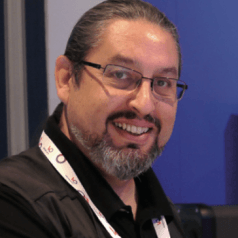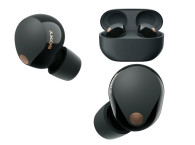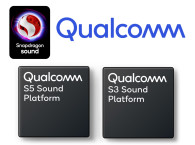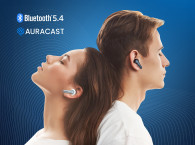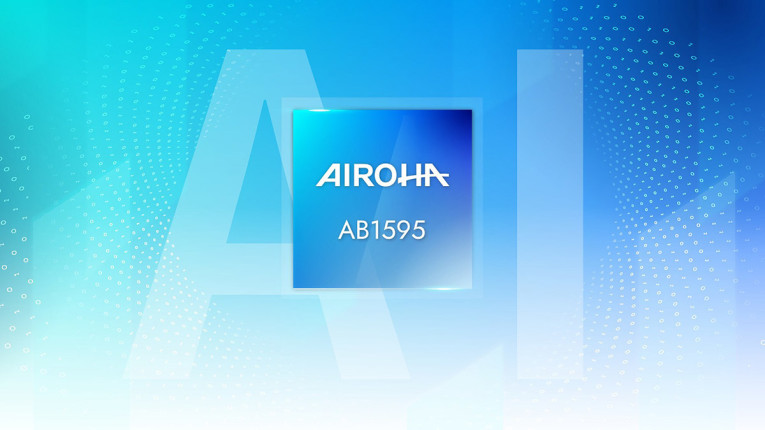
The new Airoha AB1595 SoC is the latest announcement from the company that is currently the second largest global supplier of Bluetooth chips for earbuds and headphones. The new Airoha AB1595 SoC significantly enhances speech noise reduction through the integration of AI algorithms and the collaborative processing of up to 10 microphones. It also improves the depth and bandwidth of environmental noise cancellation, enabling real-time filter adaptation to achieve consistent noise cancellation experience across various users' wearing behaviors.
According also to Airoha, the AB1595 has already been adopted by multiple brands, with products expected to be available in Q1 2025. This new flagship SoC leverages Airoha's extensive expertise in wireless communication, AI audio, and hearing aid audio technologies, overcoming numerous challenges to meet diverse product needs. Essentially, the new AB1595 accelerates the development of AI audio products that will offer consumers a more comfortable, natural conversation experience and higher quality.
"The AB1595 is not only Airoha Technology's first flagship AI audio chip with a built-in AI hardware accelerator but also the fifth-generation chip on the same development platform provided to our customers. Airoha Technology offers a comprehensive Software Development Kit (SDK) solution that allows customers to reuse components developed in previous generations and quickly integrate them with the AB1595, reducing development costs and time to market. Additionally, Airoha Technology's platform includes complete acoustic design recommendations, including customized software, hardware application notes, and tools to help customers accelerate the development of differentiated end products," explains Yuchuan Yang, Airoha Technology's Senior Vice President.
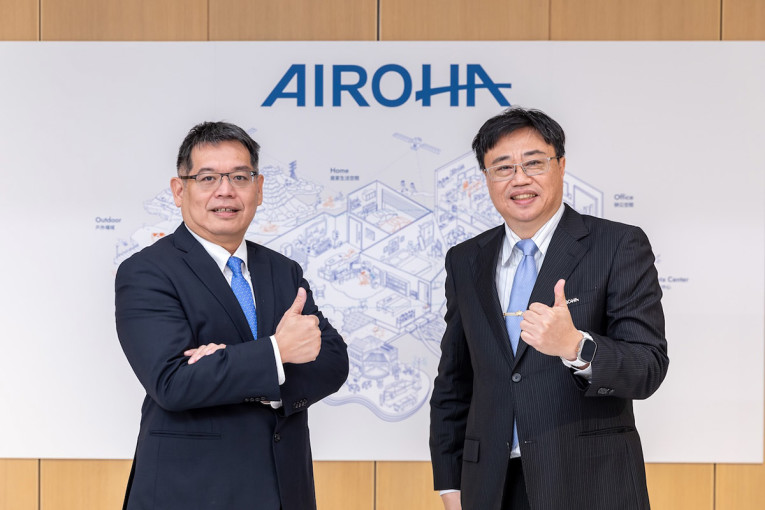
The AB1595 allows product designers to meet the stringent speech quality standards of professional-grade boom microphones in headsets with Microsoft Teams Open Office certification, all the way to consumer-grade boomless, omnidirectional earbuds. By interfacing with up to 10 microphones for ambient sound capture and using AI algorithms to accurately identify and distinguish user voice and environmental sounds, the SoC enables professional-grade speech quality in either situation.
Compared to current consumer-grade solutions, the AB1595 can enhance "voice noise suppression" from 10dB to as low as 40dB, especially in noisy environments like offices and cafes, significantly optimizing speech quality and bringing professional-grade teleconference functionality to consumer headsets and earbuds.
The AB1595 chips feature fully adaptive, real-time Active Noise Cancellation (ANC) significantly enhancing the depth and bandwidth of environmental noise attenuation. The solution enables designers to further detect the user's wearing condition (e.g., good fit or loose with leakage), performing adaptive compensation. The internal filter settings automatically adjust based on the user's wearing conditions and different environmental noise types, balancing the best noise cancelling effect with the comfort of reduced ear pressure, providing the most comfortable wearing, and listening experience. And even in noisy environments, users can clearly hear the speech from the audience they are speaking to while wearing the headset, such as on airplanes, in stadiums, or on subways.
The AB1595 flagship chip is also the industry's first 6-core architecture design supporting low power Bluetooth transmission and AI audio processing. By distributing computing tasks across multiple cores and lowering operating voltage, it optimizes power consumption. Given the high computational power required for intense AI audio data processing and the need to extend usage time - despite the trend towards miniaturization that forces a reduction in battery size - power-saving technology is crucial for overall energy efficiency. Additionally, Airoha confirms the new SoC allows a design to last up to 12 hours with a hearing aid function activated, which indicates that new OTC and even medical-grade hearing aids using AI-based processing are likely to appear soon in the market.
According to Yuchuan Yang, "The launch of the AB1595 not only brings technological innovation to the wireless audio industry but also, driven by user needs across various scenarios, breaks down the deep technical barriers that previously existed in consumer, gaming, enterprise, and hearing aid fields. Airoha Technology, already a leader in these areas, will lead the trend of integrated compatibility, allowing consumers to enjoy professional-grade speech experiences in different scenarios."
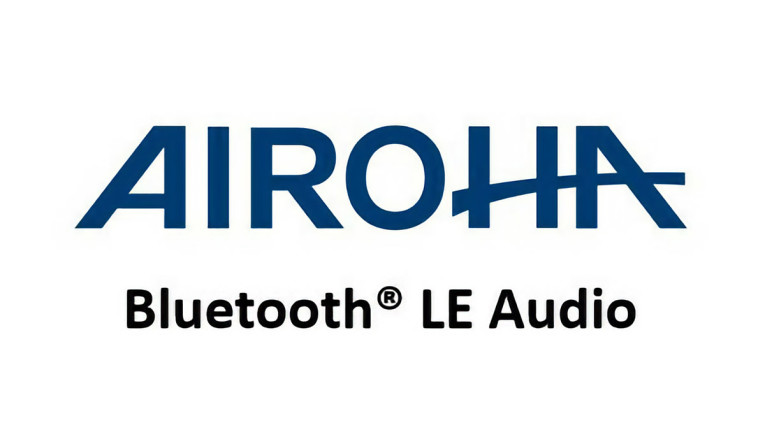
Airoha Technology has been involved in the development of Bluetooth audio chips since 2004. With continuous iterations of Bluetooth audio specifications, in 2016 Airoha has successfully helped global brands accelerate the time to market, ushering in a new era of True Wireless Stereo (TWS)) Bluetooth audio endpoints.
In a recent press conference in Taiwan, Airoha Technology confirmed its ambitions to become the world's top supplier of Bluetooth audio chips, challenging Qualcomm's leading position. This device category already represents more than half of the company's revenue, and the company says it is already the number one vendor in some application segments such as gaming. With the market transition to Bluetooth LE Audio designs, and as one of the first chip companies to achieve LE Audio certification, Airoha already holds an important strategic advantage.

According to the Airoha leadership, the market for TWS earbuds will continue to expand in 2025, allowing the company to grow its business, now with the added value of AI integration and highly-prized features such as adaptive ANC and improved natural-language processing. Airoha's devices are currently manufactured by Taiwan Semiconductor Manufacturing Co (TSMC) using the company's low-voltage 12-nanometer process, the first in the market for this type of application.
One example of Airoha's market leading role is the close partnership with Sony, which was disclosed in August 2024, when the Japanese multinational confirmed the intention to continue to work together with Airoha to further expand the market for its LDAC codec.
"Since 2021, we have been building a strong relationship with Airoha Technology as an 'LDAC Technical Partner', and Airoha has played a key role in providing technical support to audio manufacturers that adopt LDAC. Sony will continue to work together with Airoha to further expand LDAC in the market and deliver high quality sound experience to the end users all over the world," stated Yoshiyasu Ikezawa, Head of the Professional Solution Business Office, Personal Entertainment Business Unit for Sony Corporation.

"Airoha Technology has been collaborating with Sony, a global leader in acoustic technology, for many years. As the market's demand for high-quality audio experiences has increased, since 2021, Airoha has started integrating LDAC audio technology into our Bluetooth audio platforms. To date, we have shipped over 70 million Bluetooth audio chips worldwide that support LDAC audio specifications. Additionally, Airoha continues to, enhance our platform's interference resistance and actively contributing to the LDAC ecosystem, thereby establishing ourselves as one of Sony's most valuable partners," added Yuchuan Yang.
LDAC is an audio coding technology developed by Sony that enables the transmission of High-Resolution (Hi-Res) Audio content, even over a Bluetooth connection. It meets the Japan Audio Society's "Hi-Res Audio Wireless" certification codec standards, transmits 990 Kbps via Bluetooth and can automatically adjust the transmission quality based on network conditions in environments with poor Bluetooth connectivity.
www.airoha.com


